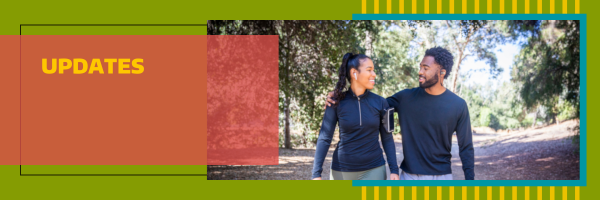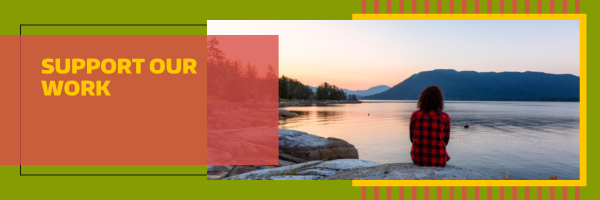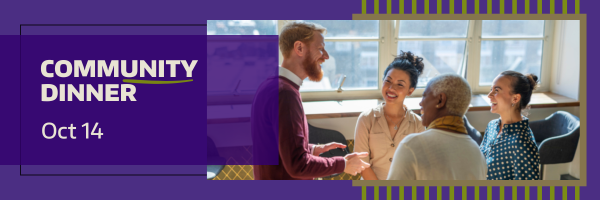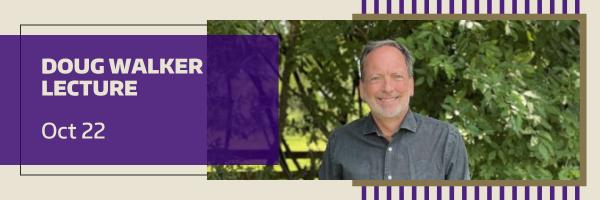Fall 2025 Newsletter

Dear Nature and Health Community,
Here in the Pacific Northwest, the sights and sounds of fall are beginning to emerge—from crimson vine maple leaves, to the calls of migrating birds, and the return of sockeye and Chinook salmon. As the school year gets underway, we’re looking forward to our upcoming research on nature contact and human well-being, teaming up with economists to quantify the cost savings of spending time in nature, and hosting community events to strengthen the Nature and Health movement across the Pacific Northwest.
We look forward to connecting with you at our upcoming events. In the meantime, please don’t hesitate to reach out.
The Nature and Health team
Upcoming Events
Community Dinner | Oct 14
Join the Nature and Health community on October 14 at Fremont Brewing for our fall community dinner. Learn about programs, policies, and research that are advancing equitable engagement with nature around Puget Sound. Connect with researchers, healthcare providers, community organizers, and neighbors who work at the intersection of public health, environmental equity, and conservation. Our fall community dinner will feature a talk from Sarah Brandt, Environmental Policy and Initiatives Lead with King County Parks. We hope that you will join us on October 14 for an evening of connection, growth, and learning.
Our community gatherings are supported by the REI Cooperative Action Fund. We are extremely grateful to the Fund’s commitment to making the outdoors more accessible and inclusive for everyone.
Doug Walker Lecture | October 22
This annual lecture is named for Doug Walker, who was instrumental to the founding of the UW College of the Environment and a passionate advocate for the environment. In order to carry on and amplify Doug’s passion for outdoor recreation and his unending desire for learning, the College of the Environment hosts this annual lecture on nature and health. Join us on October 22 for the 2025 Doug Walker Lecture, where former REI Co-op executive Marc Berejka will share reflections on how the global movement for nature and health was born, lessons we’ve learned along the way, and how we can all play a part in helping our communities benefit from the healing power of the outdoors.
Marc spent over 13 years in leadership at REI Co-op, most recently as divisional VP for community advocacy and impact and president of the REI Cooperative Action Fund, where he led government affairs, philanthropic programs, and national research on nature’s benefits to communities. After Doug Walker’s passing in 2015, he directed REI’s support for the UW College of the Environment and helped launch the UW Center for Nature and Health. Previously, he was senior technology policy advisor to U.S. Commerce Secretary Gary Locke, held public policy roles at Microsoft, and worked as a telecom attorney. He holds a J.D. from Georgetown and a B.A. from Princeton.
NW Nature and Health Symposium | April 29
Save the date for the ninth annual NW Nature and Health Symposium on April 29, 2026. Our symposia highlight novel national and international programs, policies, and research that are illuminating the healing power of nature and expanding equitable engagement with green and blue spaces. Sign up for our digital channels to learn more about our 2026 speakers and special programming: Bluesky . Facebook . Instagram . LinkedIn . Listserv
Latest Research

Our Research Collaborative has already co-authored 17 groundbreaking, transdisciplinary papers this year, diving into diverse topics from Indigenous health to sleep quality. This team aims to push boundaries and spark new conversations in many fields.
Here are some key highlights:
- “And They Are Still the Guardians of These Sacred Waters …”: Land as a Process of Reconciliation.
This qualitative study explores the reconciliatory effects of a decolonized framework on 10 Indigenous and ally community-engaged facilitators during a land-based healing lodge. Findings indicate that engaging with the land as an equitable research partner while being reflective allows facilitators to develop a decolonized relationship with the place an intervention is being held, themselves, and effectively engage with the partner community. - Greenspace Proximity in Relation to Sleep Health Among a Racially and Ethnically Diverse Cohort of US Women
Greenspace may contribute to sleep health. Although greenspace likely differs across populations, few studies have included diverse populations. To investigate greenspace-sleep health associations, overall and by age, race and ethnicity, and socioeconomic status, researchers used data collected from women in the Sister Study. Higher greenspace was associated with favorable sleep, with stronger associations among groups with more social advantages. - Charting a Path to Health for All at Net-Zero Emissions
Climate change is the defining health challenge of the 21st century, with record-breaking temperatures and extreme weather events already exacting an unprecedented toll on human health and well-being. Scientific consensus is clear: rapid and deep reductions in greenhouse gas emissions by 2050 are needed not only to reduce the risks of exceeding climate tipping points beyond which irreversible damage occurs to natural systems, but also to safeguard human health, well-being, and equity. Despite growing awareness of the climate–health nexus, climate interventions often fail to consider opportunities to maximise co-benefits.
Updates

Buffalo Eastside Teens in Frederick Law Olmsted Parks (BET in FLO)
Jennifer D. Roberts, DrPH, is a public health scholar focused on how built, social, and natural environments affect physical activity and health in marginalized communities. Roberts—born and raised in Buffalo, NY—designed a three-day summer camp to teach the city’s East Side teens about the local park system and its rich history. Through the inaugural Buffalo Eastside Teens in Frederick Law Olmsted Parks (BET in FLO) program, teens explored multiple Olmsted parks, learned about the natural environment, and discovered local history—including the role that natural landscapes in the area played during the Underground Railroad.
The Center’s co-director, Gregory Bratman, PhD, and Connor Lashus, a graduate student from Bratman’s Environment and Well-Being Lab, were invited by Roberts to support the innovative program this summer. Bratman stated that he was “grateful for the opportunity to contribute to Dr. Roberts’ important and critical work with this wonderful community and its environmental history.”
Learn more about this groundbreaking program and the history of the Olmsted park system via WKBW and Buffalo Toronto Public Media.
Get Involved

National Public Lands Day | Sep 27
Since 1994, National Public Lands Day has been the nation’s largest single-day volunteer effort. Last year, over 130 national parks hosted events with 7,600 volunteers donating 41,500 hours of service! Roll up your sleeves to help restore and preserve public lands of all types and sizes—from iconic national parks and rivers to local urban green spaces and everything in between.
Resources

Free National and State Park Days
From lush temperate rainforests and rugged coastlines to alpine meadows and glacier-capped peaks, the Pacific Northwest is home to an abundance of diverse state and national parks. During select holidays throughout the year, entrance to some parks are free. These fee-free days provide a great opportunity to visit a new place or an old favorite.
Self-Guided Forest Bathing
How do you relax and recharge? You are invited to learn and practice forest bathing, a nature immersion activity that has been shown to increase health and well-being. To get started, check out the handout or follow along with the audio guide, courtesy of UW Botanic Gardens.
UW Campus Nature
There are many different ways people interact with nature, and it can happen on various scales. UW Sustainability has put together some resources to help the UW community connect with nature, whether that means taking a quick break on campus or getting away from the urban environment for a hike or other activity.
Join Our Community

We invite you to join our different channels to learn more about the Nature and Health movement and to connect with others in the field.
- Opt into our newsletter
- Sign up for our listserv
- Join us on Bluesky, Facebook, Instagram, and LinkedIn
Interested in collaborating with us? Let us know at natureandhealth@uw.edu!
Support Our Work

Our cross-cutting research and policy engagement improves the lives of our communities. With your support, we can better understand how nature affects human health, how to best leverage these benefits, and how to implement policies that make nature more accessible to all communities.
Contributions of any size will help sustain our cutting-edge research, our community-building efforts, recognize equitable leaders in the field of nature and health, and support the next generation of researchers. Thank you.


